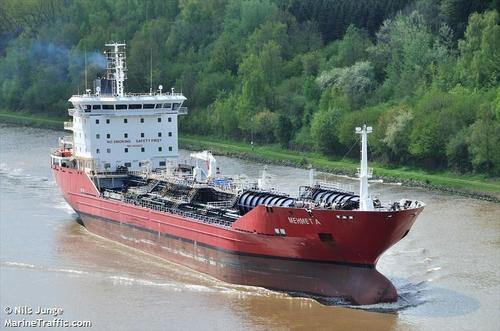ÐÎÑÑÈÉÑÊÈÉ ÏÐÎÔÅÑÑÈÎÍÀËÜÍÛÉ ÑÎÞÇ ÌÎÐßÊÎÂ
SEAFARERS' UNION OF RUSSIA
A NON-UNIONIZED SEAFARER
IS AN UNPROTECTED SEAFARER
Back
Only a collective agreement makes the working conditions of seafarers transparent

During the pandemic, labor inspectors of the Seafarers Union of Russia continue to visit ships in the ports, since the crew members have not stopped working for a minute. So in the port of Kaliningrad the m/v Star Zeta (IMO 9284477, flag of the Marshall Islands) and m/v Mehmet A (IMO 9418822, flag of Malta) have been visited by the labor inspector of the Kaliningrad regional organization of the SUR Petr Dzendzelyuk.
To be more precise, the captain did not let him on the first ship. He said that the vessl is not covered by the collective agreement and there is a direct ban from the company "do not let on board labor inspectors." In addition, the captain did not allow the crew to communicate with the Union representative and personally waited for the inspector to leave the ship.
– Unfortunately, it was not possible to find out who works on board the Star Zeta, the level of wage of seafarers, whether everything is ok for them, - said Petr Dzendzelyuk. The shipowner, Star Bulk Carriers Corp, was provided with a notice of warning about the need to sign a collective agreement.
However, it has long been proven that in case the inspector is not allowed on a ship, it means that the company has something to hide. It's does not make a sence to belive that the shipowner's ban is an indefinable obstacle for a representative of a trade union organization which is a member of the ITF. After all, inspectors work in close cooperation with governmental authorities, including port state control. And this allows us to solve many issues.The second vessel, Mehmet A, proved to be the complete opposite of Star Zeta. Here the inspector was given attention and answered questions. As it turned out, the vessel is covered by the collective agreement so the contracts of employment of seafarers and working conditions on board were in order.
– No complaints from the crew were received, said Petr Dzendzelyuk. The only thing that caught my eye that the seafarers were very busy with work. The record of working hours in a tight reach the maximum, but in line with the limits set by the MLC. On average, they work 70 hours in any seven-day period.Both examples show once again that only the ITF collective agreement on board makes the working conditions of seafarers transparent, guarantees them the protection and support of the trade union and the International transport workers Federation around the world, establishes a decent level of remuneration not lower than international standards, and insurance coverage in the event of disability or death. In addition, the ITF collective agreement improves the provisions of the MLC in the areas of wages, life insurance and contract duration.
Up
